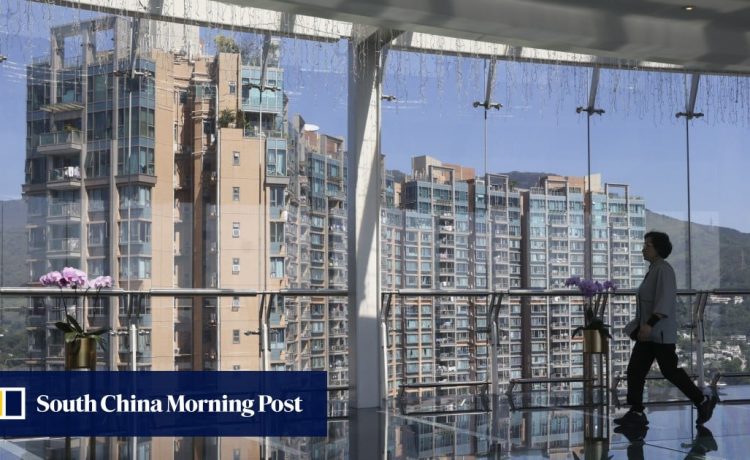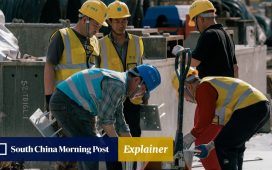“After the relaxation, there is no sign that it has affected Hongkongers’ [affordability] of properties,” he said. “Scrapping all the extra stamp duties can add energy to the real estate market and release the purchasing power of residents.”
In his annual policy address last October, Chief Executive John Lee Ka-chiu announced the rollback of some property cooling measures in a bid to “alleviate the financial burden” on residents.
Changes included ensuring buyers only needed to pay stamp duty if they sold their residential property within 24 months, instead of the previous threshold of 36 months.
The policy change also halved the stamp duty paid by non-first-time buyers, non-locals or companies from the previous rate of up to 30 per cent.
Over the past four months, the number of private residential property transactions soared by 64 per cent, from 2,123 in October to 3,477 last month.
The government’s lived-in home price index also fell about 3 per cent from 322.6 in October to 312.1 in December.
The Business and Professionals Alliance for Hong Kong political party, which holds nine Legco seats, also joined calls for cooling measures to be axed.
Jeffrey Lam Kin-fung, a party vice-chairman and a lawmaker for the commerce sector, argued that cutting the curbs would help rather than hinder government revenue streams.
Drop Hong Kong property cooling measures, pro-business groups urge finance chief
Drop Hong Kong property cooling measures, pro-business groups urge finance chief
Lam, who is also a member of top political advisory body the Executive Council, said that further slashing stamp duties could trigger a rebound for the sector and lead to spillover effects for other economic sectors, allowing the government to benefit from increased tax and land sale incomes.
Local authorities expect to record a deficit of more than HK$100 billion (US$12.8 billion), citing the sluggish recovery of the post-pandemic economy and reduced revenue from land sales and stamp duty.
The New People’s Party also echoed calls to finance chief Chan to ease measures, while the Liberal Party suggested any such plan should be “gradual”.
Representatives from all four parties have separately met Chan as he gathers views from lawmakers ahead of his budget speech.
Economist Andy Kwan Cheuk-chiu, director of the ACE Centre for Business and Economic Research, agreed that rolling back cooling measures would benefit the property market.
“Removing these measures could help rein in the real estate slump by stimulating more transactions, thus restoring investors’ confidence and easing the downward pressure on the economy,” he said.

Kwan said lifting such curbs would have little impact on government revenue as the move would produce more income from an increase in property transactions, enough to make up for the loss of stamp duties.
Professor Chau Kwong-wing, chair professor and director of the Ronald Coase Centre for Property Rights Research at the University of Hong Kong, said he believed property prices would not soar under the proposed shake-up, given the city’s underperforming economy and high interest rate.
The government should make more room for the market to self-adjust, while keeping an eye on demand from non-local buyers, he added.
“The government needs to impose extra stamp duties on them if necessary, especially when the property prices soar and there is an increase of foreign capital,” Chau said. “In the end, housing is a livelihood issue instead of an economic one.”
Remove property curbs as people’s ‘assets are disappearing’: Midland chief
Remove property curbs as people’s ‘assets are disappearing’: Midland chief
Gary Ng Cheuk-yan, a senior economist at Natixis Corporate and Investment Bank, suggested a gradual and partial easing of property stamp duties to ensure a stable housing market.
He said he believed that reducing property stamp duties could only prevent the market from falling further, while helping to stimulate some transactions.
“The prospect of a market rebound will greatly depend on whether there will be reductions of the interest rate and the level of investor confidence,” Ng said.







